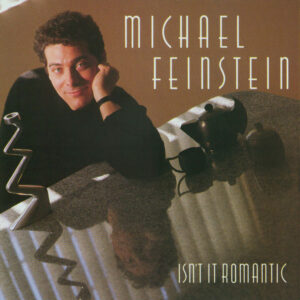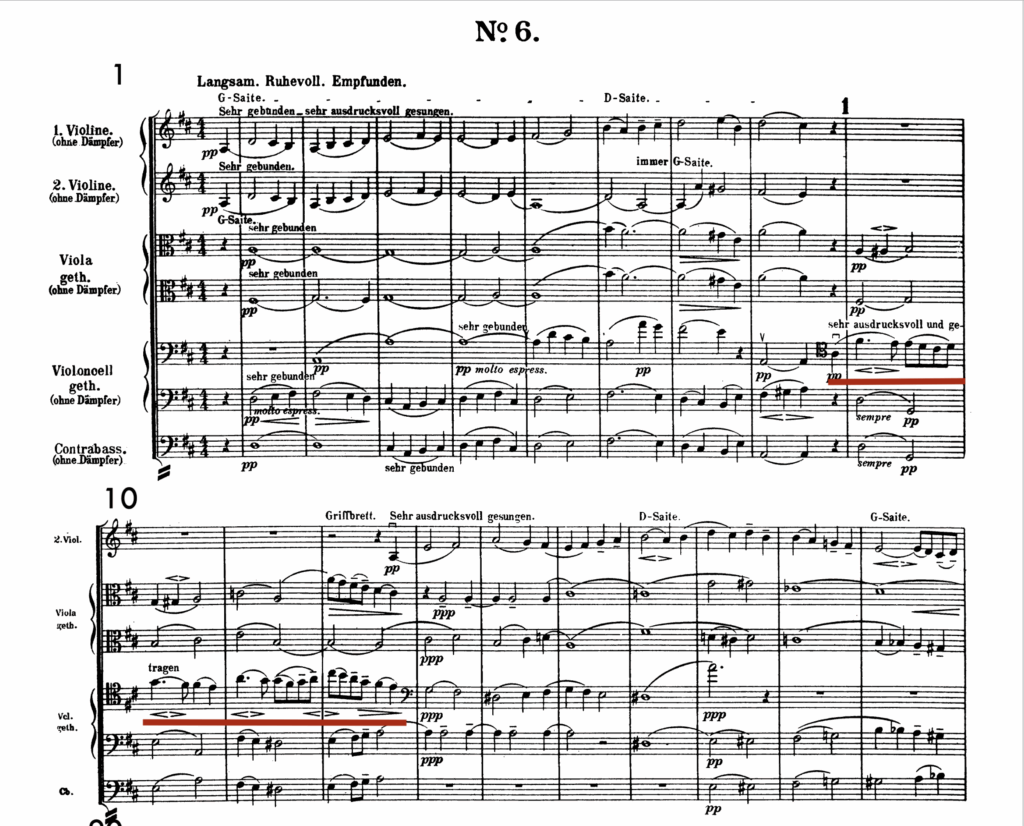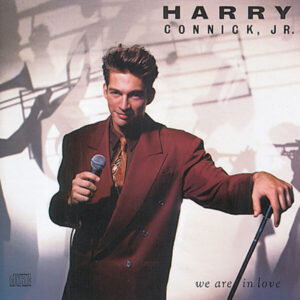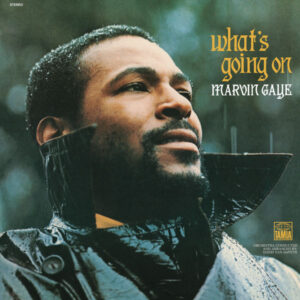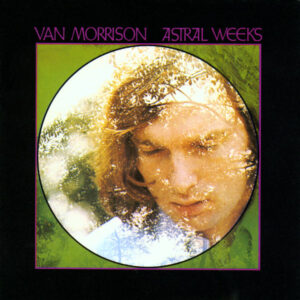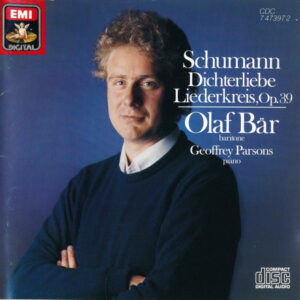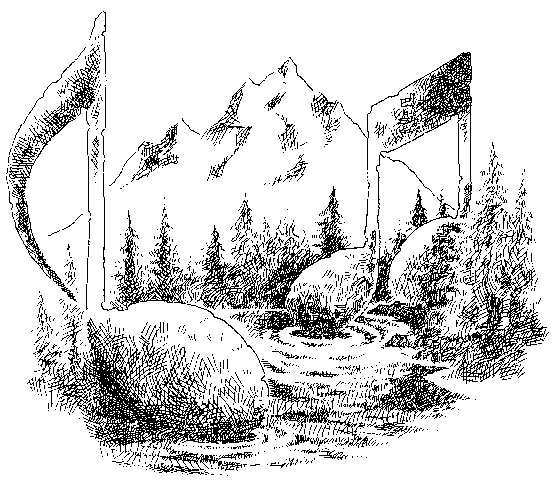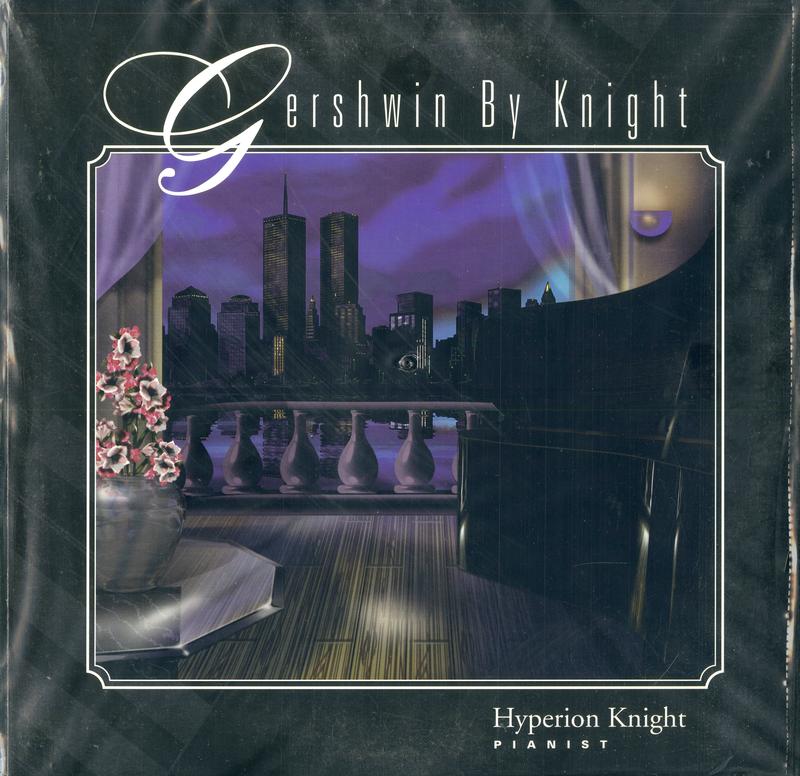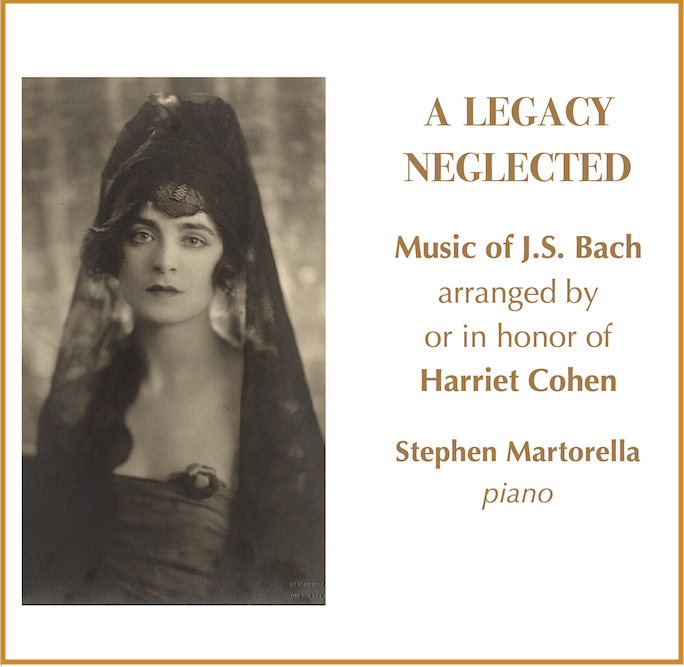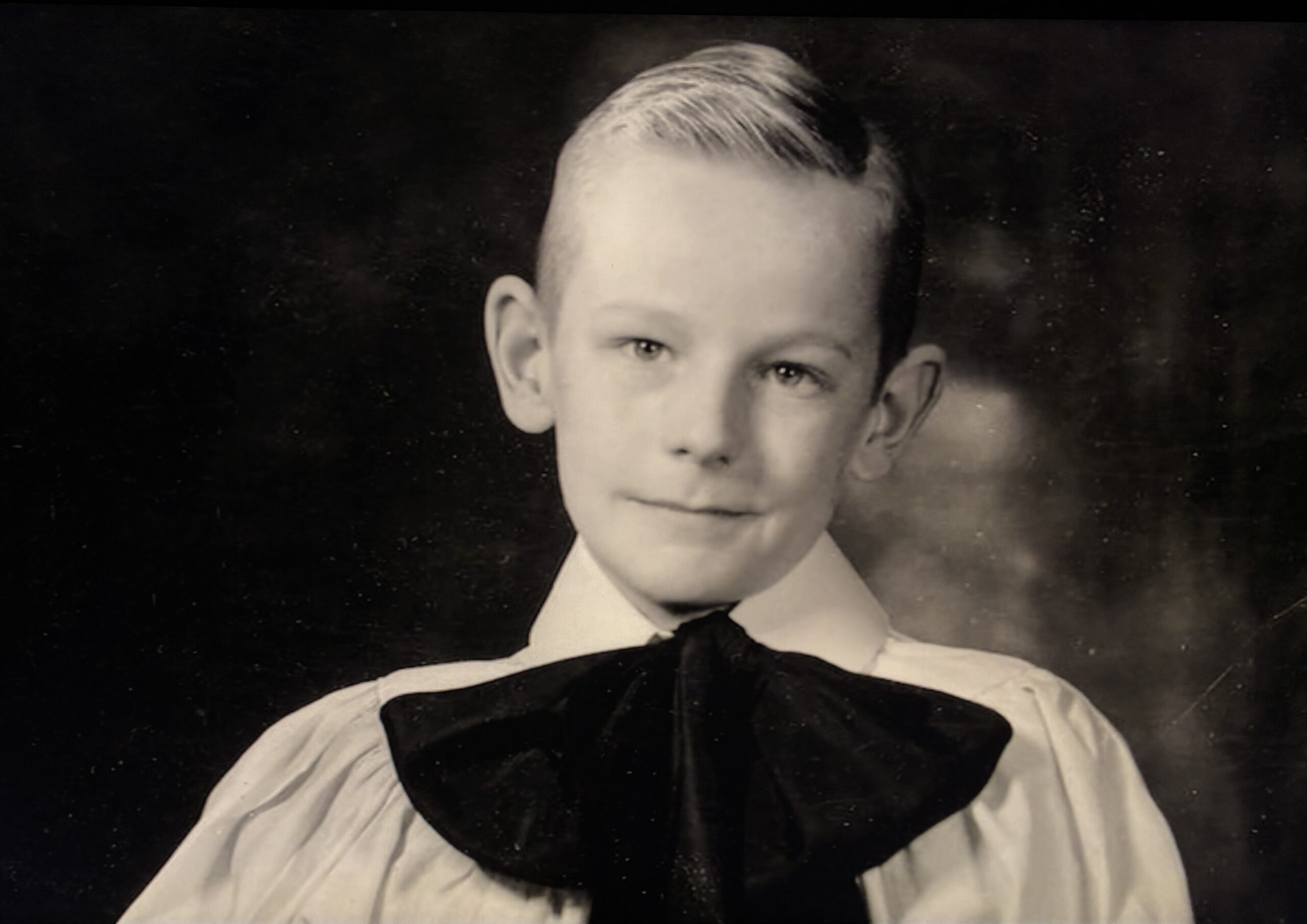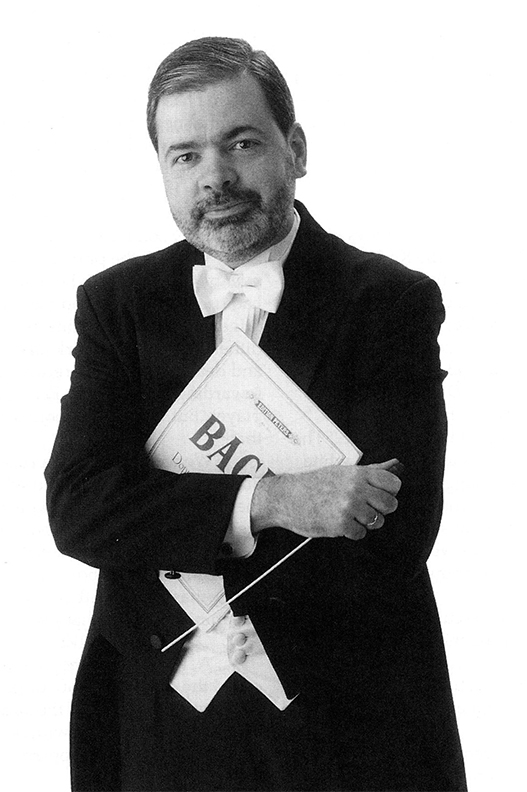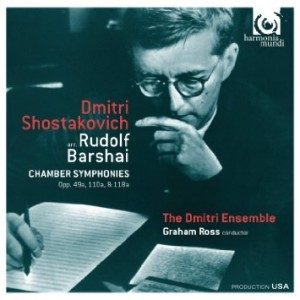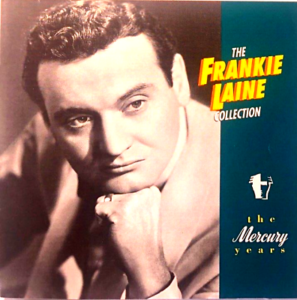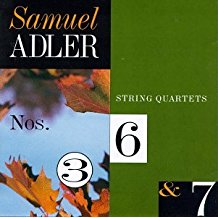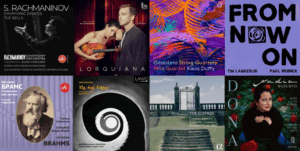John Marks is a multidisciplinary generalist and a lifelong audio hobbyist. He was educated at Brown University and at Vanderbilt Law School. He has worked as a trial and appeals lawyer; as a music educator, recording engineer, classical-music record producer and label executive; and as a music and audio-equipment journalist. He was a columnist for The Absolute Sound, and also for Stereophile magazine. His consulting clients have included Grace Design, the University of the South (Sewanee, TN), Steinway & Sons, and the Estate of Jascha Heifetz.
I recently wrote two Positive Feedback articles about Female Vocal albums that are not as well-known as they might deserve to be. (The link is to the second article, which at the top links back to the first.) So now, a few gentlemen will get their turn. Here are two "Standards" albums, two "Concept" albums, and two Classical albums.
But first, a very short short story. It's almost a Science Fiction short short story, because the imaginary protagonist I interact with is a Star Wars character. (What follows is a work of fiction; italicized, for contrast with the main text.)
It was years ago, but I remember it as though it had happened yesterday. I was just about to pour another large glass of Chateau Sainte Michelle's "Canoe Ridge Estate, Horse Heaven Hills" single-vineyard Chardonnay for my beloved mentor Obi-Wan Kenobi.
But suddenly, Obi-Wan closed his eyes. Then, his whole body shuddered.
In shock and distress, I loudly exclaimed, "Sensei, are you all right?"
Obi-Wan shook his head, as though to clear it. He then looked at me uneasily. He wonderingly said to me, "There has been a very great disturbance in the Force."
I quickly made an effort to reassure my mentor: "That? Oh, don't worry about that. That was only because Bob Dylan just sold off his song-publishing catalog for between three and four hundred million dollars."
"The bastard," Obi-Wan whispered.
Tee hee. As you might have already guessed, I think that even if you, like Zarathustra, have been living in a cave, you probably didn't need me to tell you that Bob Dylan has been a hugely important force in music and popular culture for more than 60 years. Therefore, I hereby declare Mr. Zimmerman to be hors concours. That means he won't be allowed to compete, because he has already won so much. (The same holds true for Simon & Garfunkel, Frank Sinatra, James Taylor, and Stevie Wonder.)
In compiling this list, I must admit that my "natural" tendency is in the direction of giving an artist credit for creativity, by which I mean songwriting. That, in part, plays into my belief that "just having a 'great voice' doesn't mean that you are a great singer." I don't think anyone has ever accused Van Morrison of having a great voice; but I think that he is a great singer.
The flip side of that coin is that some male singers who have never written a song are… great singers; but merely of other peoples' songs, and not their own. That is almost always the case with singers of art songs or other pieces of vocal classical music.
My organizing principle for this article is not chronological—a change from "Cherish the Ladies." Rather, I ranked the recommended recordings by their likely general obscurity among audiophiles. But "accessibility" also matters. My two Classical picks are probably more obscure than all the others. But I wanted to lead with a couple of "Standards" picks that will make for excellent, very accessible demonstration material, whether at home or at an audio show.
Here's a Qobuz playlist of my featured singles from the recommended albums. If you want to hear an entire album, just click on the album's name in the "Release" column of the single's listing.
Qobuz: https://play.qobuz.com/playlist/33451444
Michael Feinstein, Isn't It Romantic (1987)
If you want one track that should absolutely bring your listeners up short (as I said, whether at home, or at an audio show), cue up Michael Feinstein's track wherein the WWII-era (1937) weepie "I Can Dream, Can't I?" leads into another WWII-era (1938) weepie, "I'll Be Seeing You." ("But: Not Literally Seeing You. Only in my Imagination. Because, you are Gone. And I will really just be looking up at the Moon.")
Note, the way the above "splice" works means that the "Verse" (or, set-up) of "I'll Be Seeing You," which starts with the lyrics "Cathedral bells were tolling, and our hearts sang on," ended up on the cutting-room floor. But, over the decades, I think that this Verse has been more omitted than included.
"I Can Dream, Can't I?" was written (by Sammy Fain, with lyrics by Irving Kahal) for a Broadway musical that flopped. But Tommy Dorsey's 1937 recording of the song was a hit. For good measure, Harry James recorded his own version, also in 1937.
Apart from Feinstein's cover, notable "I Can Dream, Can't I?" covers include The Skyliners, Cleo Laine, Cass Elliot, The Carpenters, and Annie Lenox. The Carpenters' version is remarkable. It was arranged in (for 1975) very retro, horns-and-strings style by Billy May, complete with an era-appropriate mixed-chorus bridge—sung by hired singers, and not overdubbed by the Carpenters. Wow. (Perhaps May objected to overdubbing, on artistic principle.) It was May who famously arranged Ray Noble's "Cherokee" for the Charley Barnet Orchestra, back in 1939. ("Cherokee" is one of the most standard of all jazz "Standards.")
Feinstein's selection of "I'll Be Seeing You" (also by Sammy Fain and Irving Kahal) as a forced-choice follow-up was inspired. (Although that idea could have come from Hollywood legend, arranger Johnny Mandel.) Right after "I Can Dream, Can't I?" has made you think that a sad song could not get any sadder, here's another sad song, this one from a different Broadway musical that also flopped.
If "I'll Be Seeing You"'s tune sounds vaguely familiar, you are in good company. There is no question that the first four lines of "I'll Be Seeing You" (that is, after the Verse—we are talking about the Main Tune) are extremely similar to certain measures from the last-movement theme of Gustav Mahler's Third Symphony.
That said, it could have been an innocent case of Parallel Invention. After all, Mahler was pretty darn obscure in America in the 1930s.
However, by the 1960s, Mahler's reputation certainly was on its way up. It is generally agreed (or admitted) that Mahler's symphonies "inspired" important parts of the theme music for Star Trek's Original Television Series (OTS). Rilly. There are academic papers about that!
Fred Steiner, "Keeping Score of the Scores: Music for Star Trek," Quarterly Journal of the Library of Congress 40 (1983): 4-15.
https://www.jstor.org/stable/i29781957
Jessica Leah Getman, Music, Race, and Gender In the Original Series of Star Trek (1966-1969), diss., University of Michigan 2015.
https://deepblue.lib.umich.edu/bitstream/handle/2027.42/113404/jgetman_1.pdf
Or perhaps "I'll Be Seeing You" was an unconscious case of plagiarism—such as Radiohead's "Creep" owing a large debt to "The Air That I Breathe." BTW, Who Knew? Alan Parsons recorded "The Air That I Breathe" at Abbey Road Studios.
BTW, Who Knew? (2), "The Air That I Breathe" starts with a lead-electric-guitar note and following solo that Eric Clapton expressed great admiration for.
Renowned Mahler interpreter Frank Sinatra… OK, you got me. I was pulling your leg. Everyone knows that Sinatra was a Mozart interpreter.
Rilly. Sinatra actually did film (in Italian, with Kathryn Grayson) the famous seduction duet from Mozart's Don Giovanni. https://www.youtube.com/watch?v=ur7ybjfrQVI
Back to Mahler and "I'll Be Seeing You." Sinatra did record "I'll Be Seeing You" in 1940, with Tommy Dorsey and His Orchestra. Dorsey and his orchestra being the headliners, perhaps it is not surprising that this recording omits the "Cathedral bells were tolling" set-up. A bit disappointing. I would have preferred to hear Sinatra sing the Verse, rather than hearing the horns noodle randomly over the main tune.
Sinatra's record failed to chart until 1944, eventually peaking at No. 4. (Because, by 1944, there were a lot of lonely, anxious people.) Bing Crosby as well released his own new recording in 1944, and that one peaked at No. 1, the week of July 1, 1944.
Feinstein's entire album is great. But if you are looking for another catchy demo track, I recommend the title track, "Isn't It Romantic." Feinstein worked as a music archivist and researcher for Ira Gershwin and Harry Warren, so this album is a feast of never-before or rarely-heard lyrics. Great recorded sound, too.
Harry Connick Jr., We Are In Love (1990)
Music-trivia obsessives will be glad to learn that, in 1991, Harry Connick Jr.'s 1990 album We Are In Love won the Grammy for "Best Jazz Vocal Performance, Male." There's an interesting backstory there.
For recordings released from 1958 to 1979, that Grammy category was gender-neutral. From 1981 (for recordings released in 1980) through 1984, the jazz-vocal awards were gendered; in 1985 they were neutral; and from release years 1985 through 1990, the awards were gendered again. In 1992, the categories were combined again, and in 2001, the award was renamed "Best Jazz Vocal Album."
So, in 1991, young Harry Connick Jr. won the last-ever (so far) separate "Best Jazz Vocal Performance, Male" award. Quite an achievement for a guy who was 23 years old when he recorded an album that included a few classics such as "A Nightingale Sang in Berkeley Square" and Cole Porter's Broadway number "It's All Right with Me."
That Cole Porter song is "in" the Great American Songbook; but "Nightingale" is not. "Nightingale" was written in a small French fishing village by two vacationing Britishers in 1939, right before the start of World War II.
(When I lived in Wakefield, Rhode Island, I used to say that Wakefield was a charming Drinking Village, but with a small Fishing Problem.)
Harry Connick's "A Nightingale Sang in Berkeley Square" features great saxophone playing by Branford Marsalis, and great bass work by Benjamin Jonah Wolfe. This is definitely the track to put on when all your friends have had enough of Jane Monheit's and Christian McBride's "Honeysuckle Rose."
I was intrigued to see Bobby Colomby, formerly of Blood, Sweat and Tears, listed as a co-executive producer, but the results are right up to that level of quality. Connick's "A Nightingale Sang…" has been used every now and then as audio-show demo material, and it is a very impressive track. Both LP and CD credit Bernie Grundman as Mastering Engineer.
It's a matter of taste, but when I hear Connick's "A Nightingale Sang…," I do hear a lot of influences in it. Everyone from Frank Sinatra to Dick Haymes to Bobby Darin. Therefore, my personal most-favorite track from this album is the poignant song "Drifting." "Drifting" is a real "weepie"; it was written by co-producer Marc Shaiman. "Drifting" is my fave rave because in it, to me, Connick sounds like nobody else. Just himself. A great job of singing, that track is.
Marvin Gaye, What's Going On? (1971)
My guess is that if you asked a reasonably well-informed music listener to name the male singer who was the first artist in Billboard's history to place three Top-Ten singles on the Billboard Hot 100 from one album, these are (in alphabetical order) my most likely guesses as to what other people will think who that might have been:
Louis Armstrong, Tony Bennett, Glen Campbell, Perry Como, Elvis Costello, Jim Croce, Bing Crosby, Bob Dylan, Engelbert Humperdinck, Michael Jackson, Elton John, Gordon Lightfoot, Bobby McFerrin, Barry Manilow, Dean Martin, Paul Simon, Frank Sinatra, Cat Stevens, Sting, James Taylor, Andy Williams, Hank Williams, and Stevie Wonder.
Please leave a comment if you think I have omitted any obvious guesses. Thank you.
The correct answer is, Marvin Gaye, for What's Going On? The three Top-Ten singles being the title track, "Mercy Mercy Me, (The Ecology)" and "Inner City Blues (Make Me Wanna Holler)."
Please bear with me: This gets even better.
In 1985, the writing staff of legendary UK pop-music newspaper New Music Express (NME) voted What's Going On? The "Best" Album of All Time.
Falling into step, UK daily newspaper the (Manchester) Guardian, in a 1999 Critics Poll, declared What's Going On? to be the "Greatest Album of the 20th Century."
Belatedly not to be outdone, in 2020, Rolling Stone magazine listed What's Going On? as the "Greatest" Album of All Time, thereby displacing (or, dethroning) Sgt. Pepper's Lonely Hearts Club Band. (Why that record had been Rolling Stone's Previous Greatest, and not Abbey Road, is a mystery to me. But someone else, I am sure, would want to know why the previous Rolling Stone Greatest had not been Revolver.)
A Methodological Note: I am confident that, in 1985, New Music Express did not have a huge writing staff; most likely fewer than 24 writers. (The current Wiki category "NME Writers" has 25 listings.) I could not find any information on the Guardian's 1999 jury, but again, I assume that the Statistical Sample behind that list was rather small.
The Rolling Stone 2020 "Greatests" list was the result of a poll (with reportedly 300 respondents) that also included musicians and industry insiders, rather than only critics and writers. Erm, "Industry Insiders" such as the CEO of Atlantic Records. "The Appearance of a Conflict of Interest," anyone?
Whereas, according to the Big-Data Aggregation website "Acclaimed Music" (which was founded by a professional statistician, and which ignores reader and listener survey lists), in 2004, Pet Sounds overtook the Beatles' Revolver as the most critically-acclaimed recording in popular-music history. I've got a lot more trust in those results than I do in the others.
It almost makes one want to ask, regarding the changing fortunes of legacy recordings: What is Going On? Is some degree of "Virtue Signaling" Going On? (OK, I confess to that Apophasis. I just now did, in fact, ask.)
In any event, I don't usually think in terms of "Best" or "Greatest." So I never venture nominations. In part because I think there is an implication of Universality in such declarations. But I think that most music is Particular. Are we to judge Van Morrison and Elvis Costello by the same standards, just because they are both Irish (or at least Anglo-Irish)?
What happens if my best friend thinks that Led Zeppelin II is the Greatest, but I think that the Band's self-titled second album is the Greatest? Flintlocks at dawn, I guess. (Dear Readers, Please feel free to leave brief comments about your personal Greatest Album. Only one pick, please.)
Back to NME. By 1984, I think that the Band, the Beach Boys, the Beatles, David Bowie, Elvis Costello, Bob Dylan, the Doors, Jimi Hendrix, Van Morrison, the Rolling Stones, Roxy Music, Bruce Springsteen, and Steely Dan... all had already done their best work. But I am not prepared to sign on to the notion that What's Going On? is the Greatest Album. I don't really have a nomination for that. I just know the albums I would miss, if I never could hear them again.
Marvin Gaye's unshakeable faith in his own inspiration outlasted his label's disinclination to mess with their successful formula of churning out hit singles produced in-house (seemingly with the aid of a cookie cutter).
The result, the first Black "concept album," revolutionized the way Rhythm & Blues and Soul records were made. It is not at all an overstatement to suggest that What's Going On?'s place in music history is analogous (and equal) to that of the Beatles' Sgt. Pepper's Lonely Hearts Club Band.
With all due respect to the three hit singles, my favorite What's Going On?-related track is the B-Side single release "Sad Tomorrows," which had started out as the demo version of "Flyin' High (In the Friendly Sky)," and therefore was not included in the original album's LP release. "Sad Tomorrows" is a Bonus Track on the 2022 What's Going On? remastering. (The "A" side of that 45rpm single was "Mercy Mercy Me (The Ecology).")
Van Morrison, Astral Weeks (1968)
In my younger days, I picked up a smattering of the Latin language, but not from any formal study. I had to learn the pre-Vatican-II (Latin) Prayers at the Foot of the Altar, in case the real altar boys did not show up. And later, I was shoehorned into a somewhat snooty (Quaker) prep school, where they threw a certain amount of Latin around.
One teacher's prime bête noire was the Logical Fallacy "Post Hoc, Ergo Propter Hoc." Which means that, just because one event followed another event in time, that did not imply Causation – it is not necessarily the case that the earlier event was the Cause of the event that happened later.
The relevance of "Post Hoc…" to this article is, I have not a shred of evidence that would stand up in court that Marvin Gaye had any awareness at all of UK singer and songwriter George Ivan Morrison, stage name Van Morrison. Much less that Marvin Gaye was familiar with Morrison's career-defining 1968 breakthrough album Astral Weeks.
But it is so tempting to think that, in the same way as the Band's Music from Big Pink forcefully rearranged Van Morrison's songwriting priorities and thereby inspired Astral Weeks, Astral Weeks very well might have demonstrated to Marvin Gaye that a "Concept" or "Song Cycle" album has the potential to be greater than the sum of its parts.
There's no shortage of praise for Astral Weeks. Steven van Zandt, of Bruce Springsteen's E Street Band, has said: "Astral Weeks was like a religion to us." Elvis Costello said Astral Weeks was "still the most adventurous record made in the rock medium, and there hasn't been a record with that amount of daring made since." Legendary music critic Lester Bangs declared it the most significant record in his life, a "mystical document."
But there is a serious lack of evidence that Marvin Gaye had heard Astral Weeks before he started recording What's Going On? on June 1, 1970. The primary reason Marvin Gaye's familiarity with Astral Weeks is not a slam dunk is that there is no question that, at the beginning, Astral Weeks underperformed terribly in sales.
Also, I have not seen any mention that there were any singles released contemporaneously with the album release, or reasonably soon thereafter. Indeed, I have read statements that there were no singles released.
The lack of single releases is not necessarily an indication that Warner Brothers lacked faith in the record. It was more likely a result of Morrison's troubled ongoing contractual relationship with his former label, Bang Records. Therefore, in the absence of 45rpm singles, AM-radio airplay was unlikely.
And, seeing as we are talking about an LP released in 1968, I think that FM-radio "Album-Oriented Rock" airplay was also unlikely. But perhaps a few "Free-Form" or "Progressive" -format FM stations (such as WBRU) might have programmed an Astral Week track or three. (Or even played the entire album, in the wee small hours of the morning.)
Discographic obsessives might be mildly interested to learn that, after Van Morrison's final obligations to Bang Records had (arguably) been discharged, in order to support Morrison's 1970 album release His Band and the Street Choir, the His Band and the Street Choir song "Blue Money" was released, in 1971, as a 45rpm single.
Strangely enough, the B-Side of "Blue Money" was not another His Band and the Street Choir song. It was "Sweet Thing," from Astral Weeks. So, three years out, there was one belated B-Side single release of one Astral Weeks song.
Morrison's contract woes aside, if you sit down and listen to the first track of Astral Weeks, and then look at and think about the 1968 music releases that grabbed the three most important 1969 Grammys, there obviously is a huge disconnect. Irreconcilable Differences, even.
Van Morrison's second album is (no surprise) impressionistic, poetic, enigmatic (bordering on the terminally obscure), and "artsy" (the first track features vibes and a jazz flute; one of the album's two "Tentpole" songs, "Cyprus Avenue," features a real harpsichord). Furthermore, the music of the title/first-track song "moves" rather slowly among a very small number of chords and keys (A, D, and F#m). Almost trance-like. The pervading emotional feeling is spacey and meditative. You could say, "Stream-of-Consciousness."
(The other Astral Weeks Tentpole Song is "Madame George," which almost certainly was a "first" of sorts. FWIW & YMMV. BTW, the lyrics of "Madame George" mention Cyprus Avenue.)
In stark contrast: in their Infinite Wisdom, the 1969 Grammy voters chose:
For Record (single) of the Year, Simon & Garfunkel's "Mrs. Robinson" (from the film The Graduate). "Coo, coo, ca-choo," indeed!
For Album of the Year, Glen Campbell's By the Time I Get to Phoenix.
For Song of the Year, to songwriter Bobby Russell, for "Little Green Apples." (Which had been recorded and released in 1968 by three different singers.)
Yeah. A bunch of people who think that "Little Green Apples" is the best song of the year are likely to listen to perhaps 15 seconds of "Cyprus Avenue" before they punch the button for a different radio station. In a rather annoyed manner, that.
Van Morrison later said that in 1966 he visited an artist who had made some drawings that attempted to visualize "Astral Projection," and that inspired the song that later was his second album's title track. Furthermore, Morrison claimed that in his childhood, he had had several "Out of Body" experiences, and also that some of his song lyrics were the product of "automatic writing."
I do think it worth noting that Van Morrison recorded Astral Weeks in three sessions that took place one and two months after his 23rd birthday.
I also think that it is worth pointing out that, in view of the fact that Van Morrison started his performing and songwriting career when he was a very young teenager, the song that mentions that a particular girl was 14 years old ("Cyprus Avenue") almost certainly was based on a nostalgic memory from his own teenage years.
And, in any event, in that song, Morrison characterizes himself as "conquered," tongue-tied, and almost frozen: "Not a thing I can do." The ordinary working-class kid was too shy to approach the beautiful girl who lived in a very nice house that was across the tracks.
Olaf Bär, Dichterliebe (A Poet's Love) Heine and Schumann (1986)
Alright! It's time for a couple of Classical album picks.
German Operatic Baritone Olaf Bär, to mix a metaphor, really knocks Schumann's settings (published in 1840) of Heine's lyrical (but somewhat ironical or sarcastic) poetry out of the park.
My favorite song is Schumann Dichterliebe No. 13, "Ich hab' im Traum geweinet" ("I wept in my dream") (Heine No. 55). My second track selection is Dichterliebe No. 1, "Im wunderschönen Monat Mai" ("In the beautiful month of May").
Not much more to say other than, if Bär's dynamic range, pitch accuracy, and tone color don't just knock your socks off, you must not be wearing socks. A phenomenal recording job, too!
Bär's original Dichterliebe/Liederkreis CD is long out of print, so what is up on Qobuz comes from a 200th-Anniversary Schumann boxed set. The good news is that both the original EMI LPs and the CDs are on offer on Discogs.com, starting at $1.29 plus shipping.
Franco Vassallo, Arcano: Songs of Francesco Paolo Tosti (2021)
Classical Album Pick No. 2 is Italian baritone Franco Vassallo singing "Ideale," an art song by F.P. Tosti (who was a fascinating character). In 1907, "Ideale" was a hit record for Enrico Caruso (1873-1921). Tosti was born and educated in Italy, but he had his greatest successes in England.
Apparently, Tosti was very good at "making connections." By 1880, he was Singing Master to the Royal Family. By 1885, he was the most popular composer of songs in England. Many of Tosti's famous songs had English lyrics, such as "Good-Bye!"; but "Ideale" does not. (Ya gotta love that exclamation point after "Good-Bye." He really meant it, I gather.) In 1908, Tosti's friend King Edward VII knighted him. 'Cuz, that's what friends are for.
"Ideale" is a catchy tune that is married to exasperatingly vague lyrics. We don't know whether the song is being sung to a real person, to an Imaginary Friend, or to a Personification of the "Concept of Perfection." Nonetheless, it is a great song for showing off. After Caruso, both Björling and Pavarotti made famous recordings—back in the day.
Vassallo's is a fantastic modern recording. If you thought Olaf Bär was powerful, just listen to this. This is also a truly exceptional recording of the piano.
My second pick from this album (naturally) is "Good-Bye!"
As "Mister G." (Boris Goldovsky of the Metropolitan Opera) would say, "That's it, Kiddos!" I'll be back in a week or ten days with the rest of the Gentlemanly recommendations.
PS: I am not going to waste your time or mine discussing degrees of "Greatness." That said, I think, going forward, that the one album I will most want not to be without is Sir David Willcocks' Vaughan Williams An Oxford Elegy. With the recent version with Jeremy Irons as the Speaker (reader) a close second.




